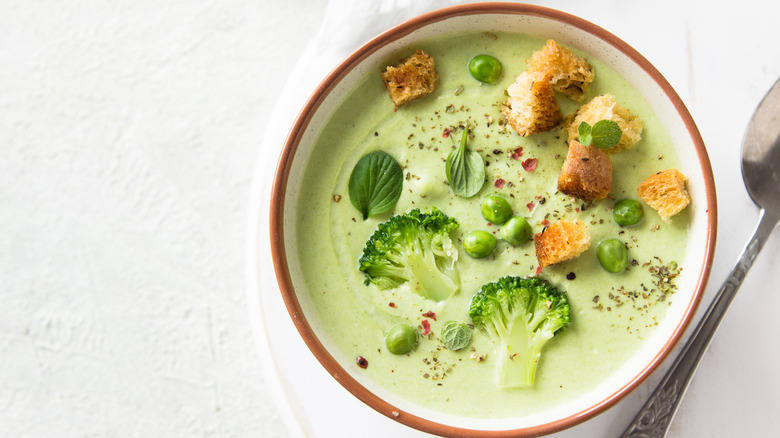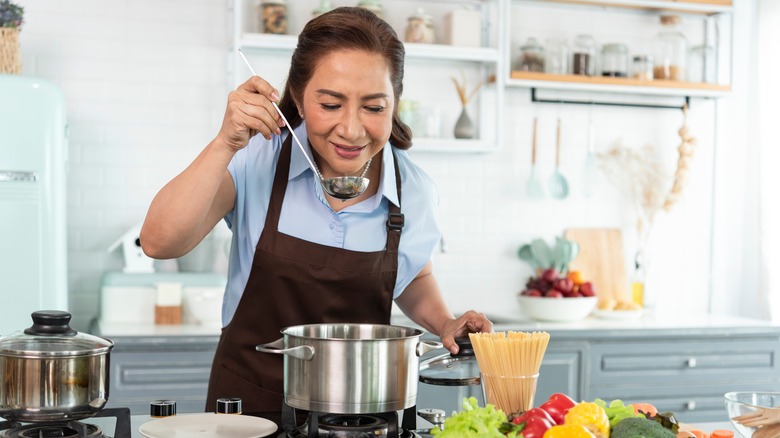Is It Too Late To Season Your Soup Right Before Serving?
Soup is a versatile dish that warms the belly and the heart while soothing the soul. Perhaps your grandmother made delicious chicken soup to ease a sore throat during the winter. Or maybe your mom or dad served thick tomato soup next to grilled cheese when you were a kid just in from a snowball fight. Whatever your fond memories of soup, there are a million ways to make a tasty and healthy variety that is a meal itself with the right ingredients.
Every soup starts with a good broth that infuses subtle flavors into the main ingredients of your soup. There are plenty of store-bought varieties that work well as a soup base. Thankfully, making your own broth with fresh herbs, spices, and ingredients at home is easy in a large pot, and having a pressure cooker speeds up the process, notes America's Test Kitchen. But the broth will taste different at the start of your soup's cooking time compared to the end, and store-bought ingredients in a can might alter the flavor based on which one you buy. You may not realize this until the end of your cooking time when the soup tastes completely different from what you expected.
It's never too late to add flavors to your soup
America's Test Kitchen says that the flavor, sodium content, and differences in quality among store-bought broth and soup bases vary widely from brand to brand. The same is true for hearty add-ins like diced tomatoes and beans. Because of these differences, you might get one flavor from a particular brand in one week and something entirely unexpected the next time you make your favorite soup. Adding seasonings right before serving can solve that problem.
Even if you add sautéed aromatics like garlic and onion to your soup at the start, you should always taste your soup before serving to ensure one flavor isn't overpowering the others. Ingredients you add at the beginning of your soup-making process will blend, notes Taste of Home. If you adjust at the beginning of your cooking time, the entire soup's flavors might be off by the time it's done. If you add too much or too little flavor at the end, it won't seep into the entire palate of the soup as it cooks for hours. It's easiest to adjust flavors right before serving the soup to your family or guests when you can deftly make corrections. There are specific types of flavors you should add right before serving your soup.
Other tips and tricks for cooking soup with various flavors
When considering delicate herbs, such as basil, chives, cilantro, dill, mint, and parsley, add those towards the end of your cooking, according to Foodal. Heartier herbs, like rosemary and thyme, can go in anywhere from a quarter to half an hour before the cooking time completes. Meanwhile, the intense tastes of fresh lime or lemon should also go in last, says America's Test Kitchen. It's easier to correct something at the end of your cooking than at the beginning.
Another tip is to season your soup gently throughout the cooking process, but don't taste it immediately after adding seasonings. Feel free to taste before the addition and then 15 minutes later to see how the extra seasonings taste on the tongue. This allows you to adjust on the fly to get that just-right flavor in the broth. Finally, if you have picky eaters who love certain flavors over others, feel free to put some of your seasonings on the dinner table for your family or guests to add as they see fit. In the end, everyone will appreciate the extra touches as the soup warms their souls and brings smiles to their faces.


